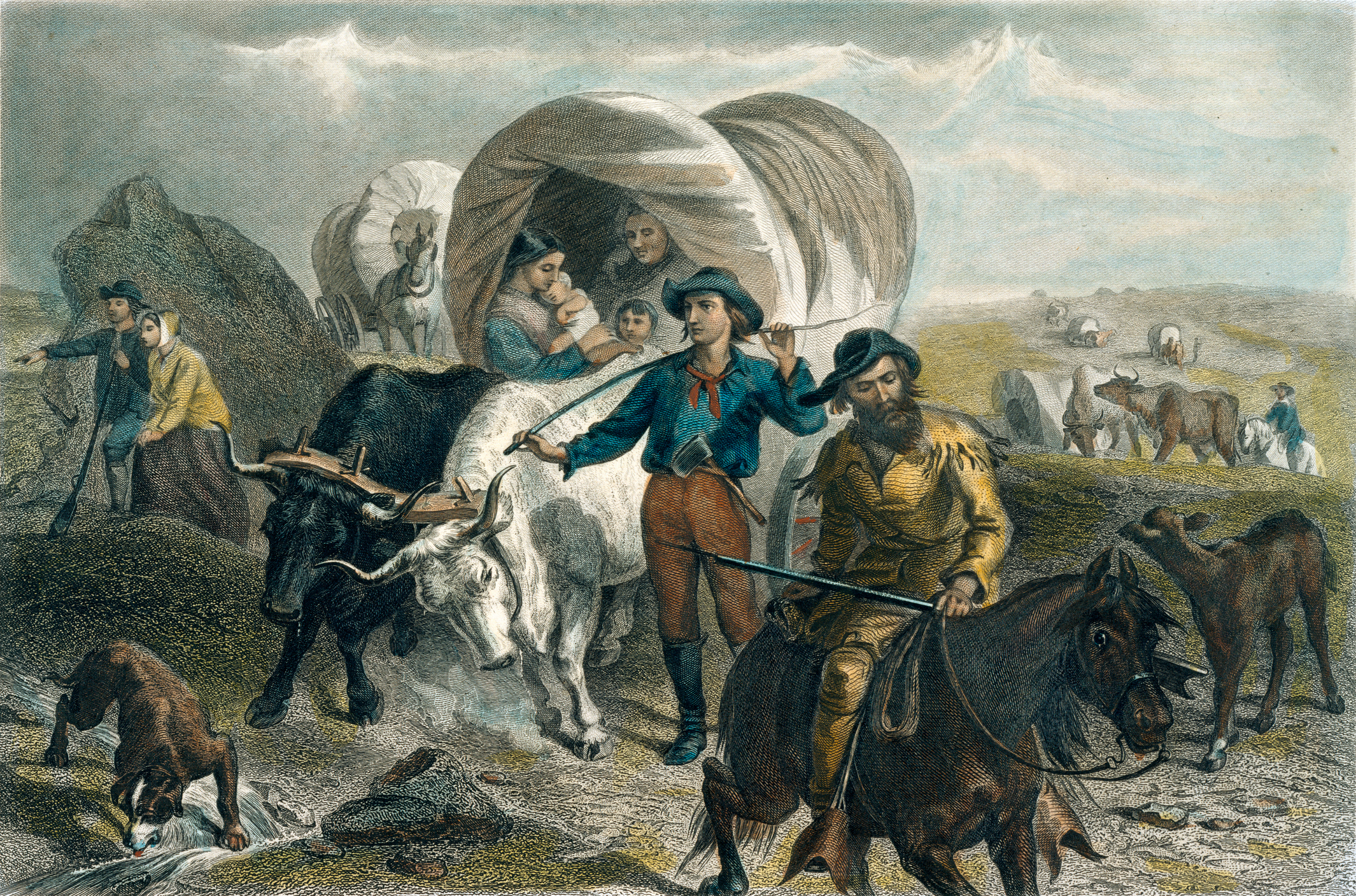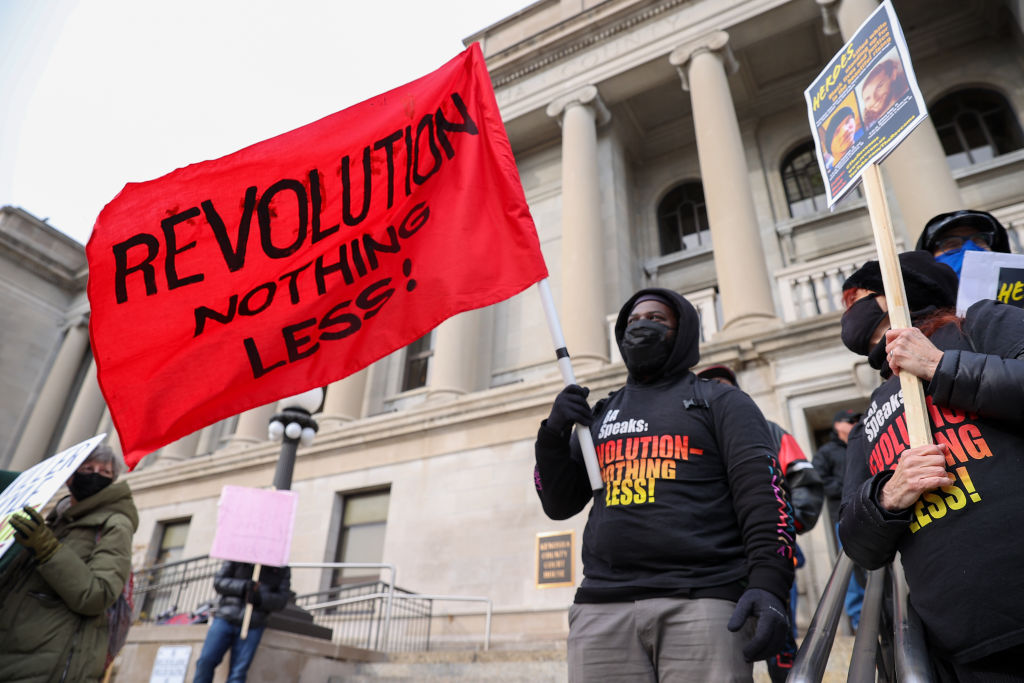Ideology, not race, is widening the fractures in American life.
The Virtues of Settler Colonialism

Is every nation presumptively illegitimate?
A few years ago, law professor Gail Heriot pointed out a problem that some on the Right have been noticing for quite some time: “Title VII Disparate Impact Liability Makes Almost Everything Presumptively Illegal.” She argued that at its core, disparate impact liability is an “incoherent” legal doctrine, because “all job qualifications have a disparate impact” on at least one protected class. Established in Griggs v. Duke Power Co. (1971), disparate impact liability grants “astonishing discretion” to the Equal Employment Opportunity Commission, the federal agency created by the Civil Rights Act of 1964 to enforce laws against workplace discrimination.
Disparate impact liability is a feature, not a bug, of our present regime. The supposed ubiquity of guilt allows the state total license to pick and choose its criminals. If everyone is guilty, then anyone may be singled out for punishment at any time.
What disparate impact liability is to the field of employment law, left-academia’s indictment of settler colonialism is to the study of history. Just as the EEOC indiscriminately targets employers whose hiring happens to disfavor non-whites, the academy is likewise free to accuse nations of injustice that have displaced—you guessed it—non-whites.
Though settler colonialism has emerged as an important term in the ongoing effort to deconstruct our nation, its history, and segments of its population—and thus has helped to form, or rather deform, the moral imaginations of many Americans—it has no legal status. Its pejorative sense may be overthrown by a change in mindset, and by the successful propagation of this mindset. The term can, and should, be reclaimed, lest it continue to serve as rhetorical ammunition for the Left’s end-game of anti-whiteness.
According to Jennifer Schuessler of the New York Times, settler colonialism originated as a technical term used by left-wing academics to denote “a form of colonialism in which the existing inhabitants of a territory are displaced by settlers who claim land and establish a permanent society where their privileged status is enshrined in law.” While usage varies from scholar to scholar, the “settler” part helps distinguish it from other forms of commercial, extractive, exploitative, or strategic colonialism, imperialism, or hegemony. Not all empires throughout history have practiced settler colonialism, nor even all the great European powers of the Age of Imperialism. But those that did left new nations scattered around the world, notably Anglo societies in Australia, New Zealand, Canada, and the United States. These nations happen to be among the world’s wealthiest; and owing to the Left’s expropriative purposes, their demoralized populations are readily attacked for being “on stolen land.”
Use of the term “settler colonialism” has exploded over the last two decades, outpacing even “structural racism.” Like so many concepts formulated by the radicals in the twentieth century academy, it has successfully colonized the culture and public discourse of the twenty-first century. One might go so far as to say that settler colonialism aspires to establish itself permanently; as recent usage has revealed, its privileged status is already partially-enshrined in the laws of discourse.
Left-academic usage of settler colonialism is strictly, and polemically, anti-Western. They use our own history as a cudgel with which to beat us, highlighting the crimes of the settling and colonizing peoples and emphasizing the victimhood status of peoples who were displaced or conquered. Conservatives meanwhile seem merely intent to ignore the accusation of settler colonialism or downplay its accuracy, to no avail. The results of this conceptual colonization have been the demoralization of many once-proud Americans, and the emboldening of those with grievances, real or imagined, against the United States and its citizens.
It is time to overthrow the pejorative sense of settler colonialism and reclaim it for our own purposes. I have no illusions about being able to persuade anyone currently convinced that the history of the United States renders it uniquely guilty of the crimes that attend conquest and colonization. We have been shouted deaf with the crimes and injustices involved in this project. The proper response is to de-stigmatize settler colonialism, and the history it describes, to reach and encourage ordinary Americans who don’t reflexively seek out every injustice in history as a pretext to hate their country. It is time to center a settler-colonialist-positive vision of America.
Key to this project of reframing means acknowledging that settler colonialism is central to American history. It has long dominated our self-understanding and our national mythology, encompassing Pilgrims and pioneers and is memorialized in our songs and stories and films, above all, our great Westerns. Before, during, and after the political founding of which Americans are rightfully proud, Americans were engaged in a generations-long project of conquering, settling, and civilizing this great continent. This project was carried out by intrepid pathfinders and pioneer families, by solitary adventurers and agents of the state, by trappers and traders and rivermen and cattlemen and cowboys and farmers and railroad men who, together over the course of centuries, “a thoroughfare for freedom beat / across the wilderness.”
Since settler colonialism entails both the conquest of an existing population and the establishment of a new society for the colonizers, the Western tradition has long affirmed the specific combination of virtues that enables a people to practice it. Settler colonialism necessitates both the arts of war—that is, courage, cleverness, tenacity, strength, honor, loyalty—and the arts of peace—industriousness and diligence, orderliness and leisure, scientific inquiry, and the fine arts.
John Adams understood this well. He rejected the excessive desire for conquest as characteristic of “Asiatic Emperors” such as “Mahomet, Gengizcan and Tamerlane” rather than the Western classics. But he affirmed the need “to elevate the minds of our children and exalt their courage,” for “their bodies must be hardened, as well as their souls exalted. Without strength and activity and vigor of body, the brightest mental excellencies will be eclipsed and obscured.” This ideal combination within the individual is echoed in his famous statement on the generational division of labor that lay before the new nation:
The Science of Government it is my Duty to study, more than all other Sciences: the Art of Legislation and Administration and Negotiation, ought to take Place, indeed to exclude in a manner all other Arts.—I must study Politicks and War that my sons may have liberty to study Mathematicks and Philosophy. My sons ought to study Mathematicks and Philosophy, Geography, natural History, Naval Architecture, navigation, Commerce and Agriculture, in order to give their Children a right to study Painting, Poetry, Musick, Architecture, Statuary, Tapestry and Porcelaine.
For Adams, personal and political self-governance are a prerequisite for devotion to the intellectual and productive activities that constitute and adorn a high civilization. And from our first settlements, Americans have embodied this dual capacity for conquest and culture.
In Democracy in America, Alexis de Tocqueville noted the connection between the capacity for local self-government and the capacity for settler colonialism. Contrasting the failure to create “a great French nation in the American wilderness” with the Anglo-American success, Tocqueville commented:
Free peoples habituated to a municipal regime succeed much more easily than others in creating flourishing colonies. The habit of thinking by oneself and governing oneself is indispensable in a new country, where success necessarily depends to a large extent on the individual efforts of the colonists.
Such civic habits, along with many more daring and warlike attributes, are among the virtues that enabled the most rapid geographic spread of Western civilization in history. Such virtues helped Americans convert a conquered continent into a well-ordered republic. We used to praise these virtues as distinctly American, beginning with the Pilgrims. Now, we recast the Pilgrims as refugees fleeing religious persecution and don’t know what, if anything, to say about our pioneers.
Tocqueville was already impressed at what he saw, though in the 1830s Americans had barely begun to settle beyond the Mississippi. By the end of the century, that move beyond the Mississippi would furnish material for some of the most beloved children’s books in American history. The adventurousness, orderliness, tenacity, flexibility, civility, and hard-working grit of the Ingalls family, and others like them, exemplify the virtues of American settler colonialism. The classical tradition would say these are not the highest virtues, simply speaking. But they are among those required to make a great nation, and they obviously exceed the values preached by our present ruling class.
Tocqueville understood the tension between “a very civilized society” and the virtues required for local self-government and continental settler colonialism:
The difficulty of founding the independence of townships, instead of diminishing as nations become enlightened, increased with their enlightenment. A very civilized society tolerates only with difficulty the trials of freedom in a township; it is revolted at the sight of its numerous lapses and despairs of success before having attained the final result of experience. Township freedom therefore eludes, so to speak, the effort of man. Thus it rarely happens that it is created; it is in a way born of itself. It develops almost secretly in the bosom of a half-barbaric society.
The complacency with which the subjects of an administrative state wait for a central authority to send an expert to solve their local problems is the same complacency with which many Americans today submit to the diktats of the EEOC and the insults of the anti-colonialist Left.
Tocqueville was clear-sighted about the deep cultural prerequisites for liberty. Americans seeking to preserve what remains of that liberty should remember our own history, and how our roots in “a half-barbaric society” enabled us to conquer and settle a continent. And even if we cannot simply reconstruct such liberty, we may be able to recover it by cultivating again the virtues required for settler colonialism. At the very least, we could get in the habit of brushing aside the selective accusations leveled against us by accusers who hate us and condemn the preconditions for our present, prosperous way of life.
The American Mind presents a range of perspectives. Views are writers’ own and do not necessarily represent those of The Claremont Institute.
The American Mind is a publication of the Claremont Institute, a non-profit 501(c)(3) organization, dedicated to restoring the principles of the American Founding to their rightful, preeminent authority in our national life. Interested in supporting our work? Gifts to the Claremont Institute are tax-deductible.
Jeremy Carl’s arguments on race should be heeded.
The Left’s racial revenge fantasies are well underway in America.
Noticing reality is the first step toward national renewal.
If they don't act, white Americans will soon be subsidizing their own destruction.





